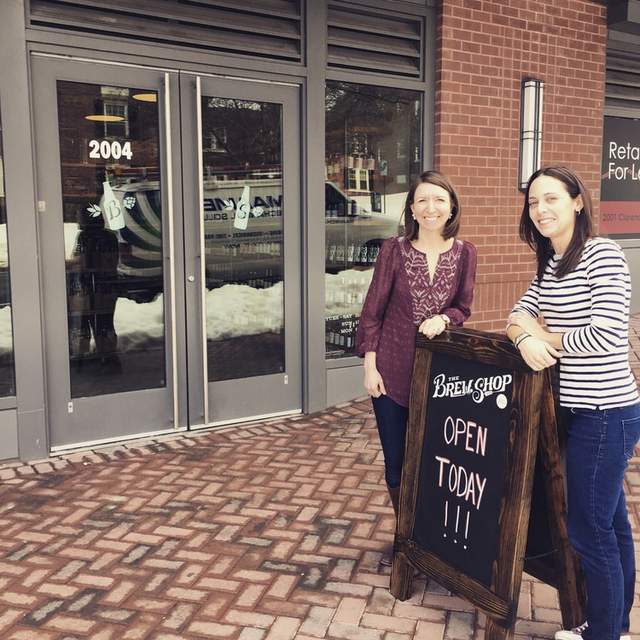
Covid-19 has had an incredible impact on almost everything, including the beer business, with both local and national breweries changing their business models or shutting their doors permanently.
In a recent article on The Blueprint, a site run by The Motley Fool housing tons of cool features on business software, Les Shaver tells the story of The Brew Shop, a specialty wine and beer store in Arlington, Va., that has been exceptionally resilient despite the impact of Covid-19. In the article, How One Small Beer Shop Tapped Into Online Sales in Response to COVID-19, Shaver recounts how owners Julie Drews and Beth Helle have been able to stay ahead of the curve by quickly shifting their brick and mortar format to online and delivery services. We thought this would provide some interesting insights for CBB readers.
Shifting away from the in-store model
As stay-at-home orders went into effect, Drews and Helle tried to keep the store open with some restrictions, including only allowing five customers in the store at any given time. But the size of the store made it very hard to social distance, and the owners felt that safety needed to be the top priority.
Drews explained: “We had people waiting outside, but that lasted only about a week. It was just uncomfortable for our employees and for us to try to function and move around. We’re trying to stay far enough away from people, but our store is not that big. It’s hard to do that when you’ve got customers.”
Ultimately, The Brew Shop closed its doors to walk-in customers, and the owners made two key changes to their business: They shifted to an online sales and delivery model and they capitalized on their already loyal email following. Drews and Helle began the search for the right software tools to support their new business model.
Choosing the right POS and ecommerce system
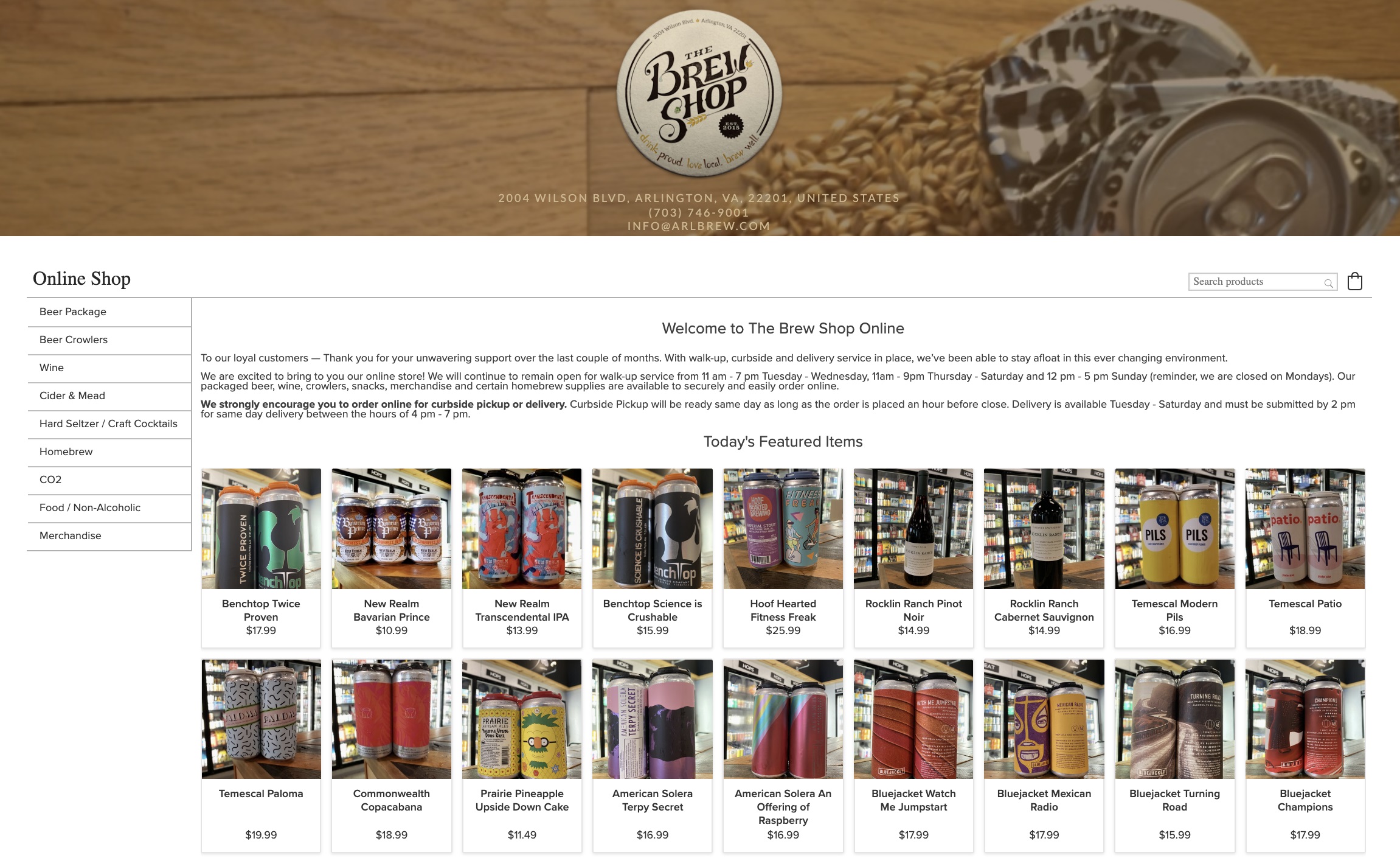
When looking at software solutions to solve their stocking and inventory issues, the founders considered a variety of e-commerce and POS systems. This is a decision many retailers face, but these days it’s never an easy one.
“Six to seven years ago, POSs were strictly for brick-and-mortar locations, while eCommerce platforms were solely for online retail. There was a clear distinction and the choice was easier,” explained Craig Borowski, managing editor of The Blueprint.
“Now that most POS software is online and many retailers need to handle both on- and offline transactions, the eCommerce/POS distinction is quite blurry. Business owners need to be extra careful when shopping for the right solution to make sure it does exactly what they need.”
Ultimately, The Brew Shop founders had several reasons for choosing a POS solution called Shopkeep.
“The advantage of it is that the online/offline inventory systems talk to each other,” Drews said. “So, our in-store inventory talks to the online store. If we went with someone else, we’d have to limit what’s available online.”
Drews said that this decision was driven by the need to have the whole inventory of 375 to 450 beers available online.
“We don’t want to only sell 50 things, which we could have done… and call it a day,” Drews explained. “We wanted to figure out a way to have our whole inventory available to everyone.”
Shopkeep’s system enabled this.
Establishing a delivery system
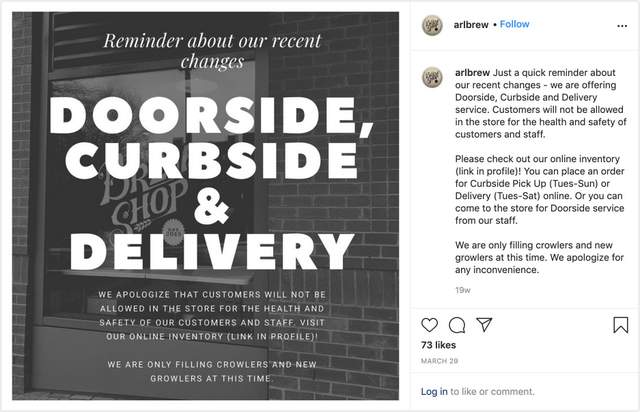
Before the coronavirus, the founders determined that they needed another source of customers in the area, and they noticed a large number of start-ups and small businesses popping up in the Arlington area that might be interested in having craft beer delivered regularly.
When Covid-19 impacted their in-store business The Brew Shop was already prepared to legally deliver craft beer to customers.
“We already had a delivery license in place [from its corporate deliveries],” Drews said. ”With regards to deliveries to individuals vs. corporate, the number of deliveries certainly went up and the number of items in each delivery went up as well. We were just starting to get our footing in corporate deliveries, so we were only doing a handful of deliveries a week and oftentimes it was kegs for office kegerators.
“Those deliveries tend to be easy, even if heavy, to put together and inventory. When we started delivering to individuals, we were stocking people’s beer fridges at home, which tends to want for variety vs. volume. So those deliveries have a lot more individual items. The volume also went way up. We were doing anywhere from a handful a day to more than I could safely fit into my sedan in one load — and the predictability went down.”
To manage the large influx of deliveries, The Brew Shop implemented a schedule to ensure that deliveries were manageable.
“Delivery is set up such that if a customer submits by 2 p.m., their order will be delivered that day between 4 to 7 p.m., so the delivery volume/route is established prior to beginning the delivery process. With corporate deliveries, those were generally scheduled more in advance, around office happy hours or other events.”
Additional complications with delivery arose with the complications of Virginia’s laws regarding alcohol.
“Virginia alcohol law is a bit murky when it comes to who is allowed to deliver alcohol, as far as employees vs. contractors, so we knew we wanted to keep it in house,” said Drews. “To avoid having to have a conversation with our insurance agent about employees driving cars for the shop, we decided having the owners run deliveries was probably the best answer in the short term. Will we keep doing it this way going forward? I have to chuckle and say, ‘Who knows?’ We’re just taking it one step at a time right now.”
Digital marketing channels
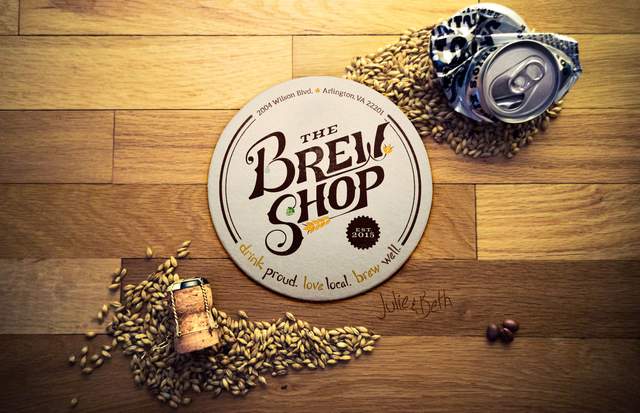
Presence on digital channels was necessary even before Covid-19. However, local businesses like The Brew Shop, relied heavily on in-store interactions and community building as a core part of their marketing strategies.To replace the in-store interactions the founders decided to expand upon their existing email strategy by capitalizing on their already engaged “Beer Geek” email following.
According to Borowski ”Email marketing software is proving especially important for small businesses and traditional retailers as they pivot to online business models, as it enables them to schedule the outgoing emails, and track how readers are responding to the content. When you are working as a small business, the needs of every customer counts, and tools like this make it easy to understand their interests.”
Other businesses in the brewing industry are also capitalizing on digital channels. Mason Ale Works found success capitalizing on their social media presence in tandem with a direct-to-consumer sales model.
So how have these changes impacted the store?
Drews said that their sales haven’t changed that much since they implemented changes.
“We’re seeing people purchasing more at one time, and there are some people we’re delivering to every third week. They are probably spending the same as what they used to spend. They’re just doing it in chunks now.” The shifts made by the two owners have enabled them to keep their business afloat in times of serious uncertainty.”
Caroline Linne is the media relations lead at The Blueprint by the Motley Fool. She loves staying up to date on the latest news in small business, entrepreneurship, and women in leadership. Her favorite Beer: Rheingheist’s Truth IPA.



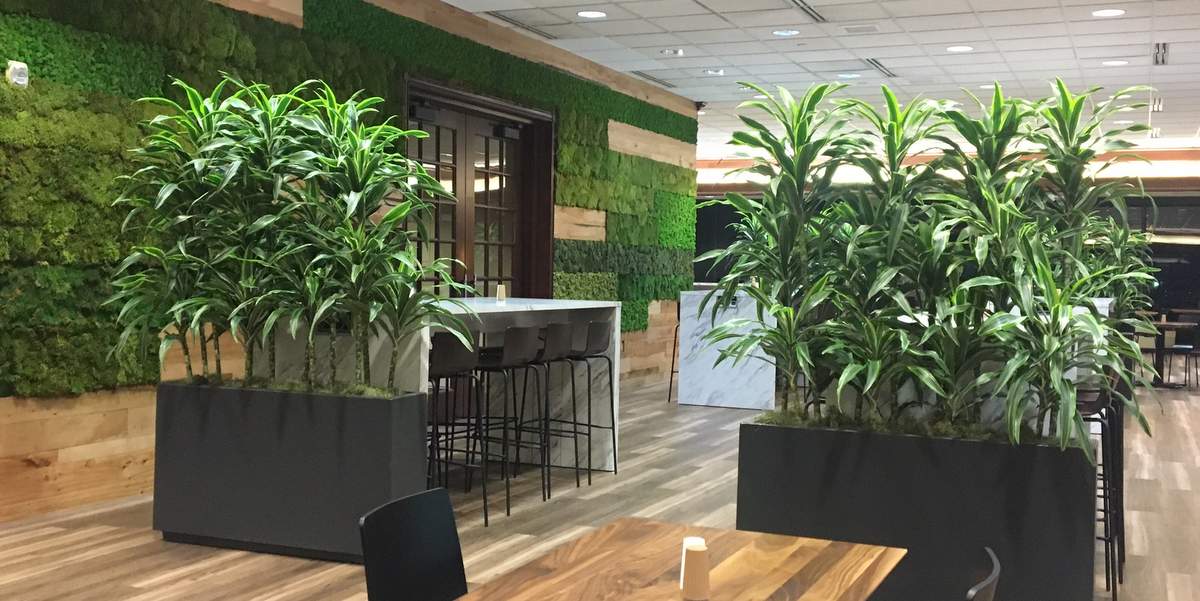

Leave a Reply
You must be logged in to post a comment.